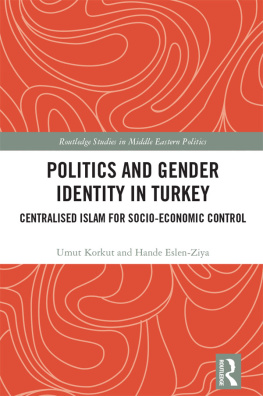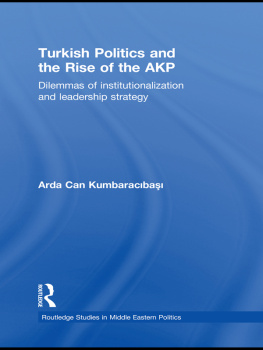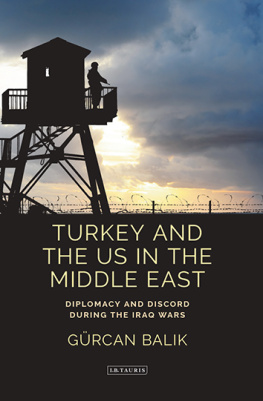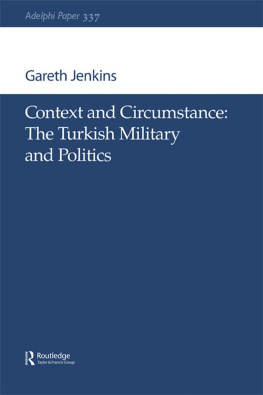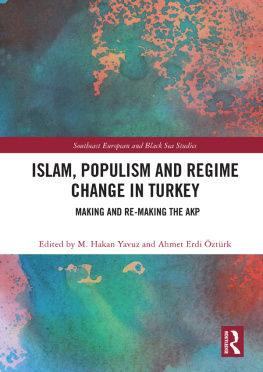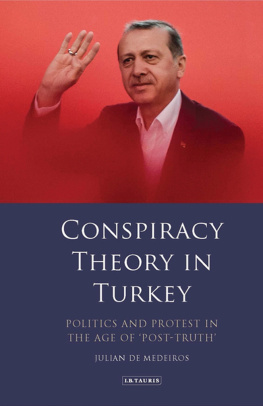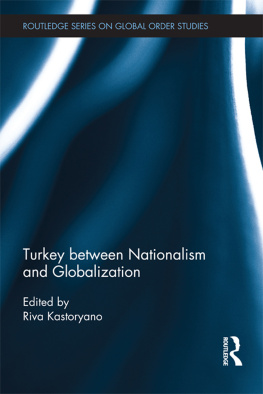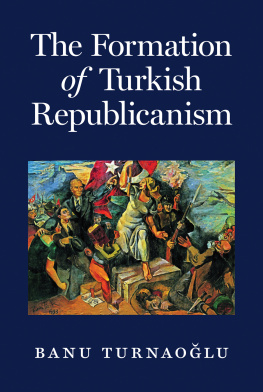Politics and Gender Identity in Turkey
Turkish nationhood creation, citizenship, economic transformation, the forceful removal of minorities and national homogenisation, gender rights, the position of armed forces in politics, and the political and economic integration of Kurdish minorities in Turkish polity have all received major interest in academic and policy debates. The relationship between politics and religion in Turkey, originating from the early years of the Republicanism, has been central to many if not all of these issues.
This book looks at how centralised religion has turned into a means of controlling and organising the Turkish polity under the AKP (Justice and Development Party) governments by presenting the results from a study on Turkish hutbes (mosque sermons), analysing how their content relates to gender roles and identities. The book argues that the political domination of a secular state as an agency over religion has not suppressed, but transformed, religion into a political tool for the same agency to organise the polity and the society along its own ideological tenets. It looks at how this domination organises gender roles and identities to engender human capital to serve for a neoliberal economic developmentalism. The book then discusses the limits of this domination, reflecting on how its subjects position themselves between the politico-religious authority and their secular lives.
Written in an accessible format, this book provides a fresh perspective on the relationship between religion and politics in the Middle East. More broadly, it also sheds light on global moral politics and illiberalism and why it relates to gender, religion, and economics.
Umut Korkut is Reader at Glasgow School for Business and Society at Glasgow Caledonian University. Previously, he was Research Fellow in the School for Politics and International Relations at the University College Dublin (20072010).
Hande Eslen-Ziya is Research Fellow at the University of Brighton, School of Applied Social Sciences. She holds a PhD in Sociology from Polish Academy of Sciences, Warsaw, Poland. In 2015, she was awarded Associate Professorship in Sociology by the Turkish Higher Education Council.
Routledge Studies in Middle Eastern Politics
For a full list of titles in the series: www.routledge.com/middleeaststudies/series/SE0823
78The Europeanization of Turkish Public Policies
Ali Tekin and Aylin Gney
79Diasporic Activism in the Israeli-Palestinian Conflict
Svenja Gertheiss
80Israels Military Operations in Gaza
Marouf Hasian, Jr.
81The Turkish AK Party and its Leader
Edited by mit Cizre
82Democratic Consolidation in Turkey
Edited by Cengiz Erisen and Paul Kubicek
83Saudi Arabian Foreign Relations
Rene Rieger
84Kurdish Politics in Turkey
Seevan Saeed
85Minority Rights in Turkey
Gzde Yilmaz
86Municipal Politics in Turkey
Charlotte Joppien
87Politics and Gender Identity in Turkey
Umut Korkut and Hande Eslen-Ziya
First published 2018
by Routledge
2 Park Square, Milton Park, Abingdon, Oxon OX14 4RN
and by Routledge
711 Third Avenue, New York, NY 10017
Routledge is an imprint of the Taylor & Francis Group, an informa business
2018 Umut Korkut and Hande Eslen-Ziya
The right of Umut Korkut and Hande Eslen-Ziya to be identified as authors of this work has been asserted by them in accordance with sections 77 and 78 of the Copyright, Designs and Patents Act 1988.
All rights reserved. No part of this book may be reprinted or reproduced or utilised in any form or by any electronic, mechanical, or other means, now known or hereafter invented, including photocopying and recording, or in any information storage or retrieval system, without permission in writing from the publishers.
Trademark notice: Product or corporate names may be trademarks or registered trademarks, and are used only for identification and explanation without intent to infringe.
British Library Cataloguing-in-Publication Data
A catalogue record for this book is available from the British Library
Library of Congress Cataloging-in-Publication Data
Names: Korkut, Umut, author. | Eslen-Ziya, Hande, author.
Title: Politics and gender identity in Turkey : centralised Islam for socio-economic control / Umut Korkut and Hande Eslen-Ziya.
Other titles: Routledge studies in Middle Eastern politics ; 87.
Description: Milton Park, Abingdon, Oxon ; New York, NY : Routledge, 2018. | Series: Routledge studies in middle eastern politics ; 87 | Includes bibliographical references and index.
Identifiers: LCCN 2017031661 | ISBN 9781138223233 (hbk) | ISBN 9781315405384 (ebk)
Subjects: LCSH: Islam and politicsTurkey. | Islam and stateTurkey. | Religion and sociologyTurkey. | NeoliberalismTurkey. | Human capitalTurkey. | AK Parti (Turkey) | Sex roleTurkey. | Gender identityTurkey. | Sex roleReligious aspectsIslam. | Gender identityReligious aspectsIslam. | TurkeySocial policy.
Classification: LCC BP173.7 .K687 2018 | DDC 322/.109561dc23
LC record available at https://lccn.loc.gov/2017031661
ISBN: 978-1-138-22323-3 (hbk)
ISBN: 978-1-315-40538-4 (ebk)
Typeset in Times New Roman
by Apex CoVantage, LLC
The studies on political history of modern Turkey have emphasised the conflicts that westernisation has generated in the country since the early 20th century. In this respect, the Turkish nationhood creation, citizenship, economic transformation, the forceful removal of minorities and national homogenisation, gender rights, the position of armed forces in politics, and the political and economic integration of Kurdish minorities in Turkish polity have all received major interest in academic and policy debates. The relationship between politics and religion in Turkey, originating from the early years of the Republicanism, has been central to many if not all of these issues. Our book is a contribution to this literature with a recent study on how centralised religion has turned into a means of controlling and organising the Turkish polity and polis under the AKP (Justice and Development Party) governments. We argue that the political domination of a secular state as an agency over religion has not suppressed, but transformed religion into a political tool for the same agency to organise the polity and the society along its own ideological tenets. We follow how this domination organises gender roles and identities to engender human capital to serve for a neoliberal economic developmentalism. Finally, we also discuss the limits of this domination reflecting on how its subjects position themselves between the politico-religious authority and their lives in the secular realm. In order to discuss these theoretical assumptions, we offer a study on Turkish hutbes (mosque sermons) and their content related to gender roles and identities.

